Buy Cymevene : Ganciclovir 500 mg Injection Online For Sale
$77.94
Brand Name : Cymevene
Composition : Ganciclovir
Manufactured by : Roche Holding AG
Strength : 500 mg
Form : Injection
Packing : Pack of 1 Injection
Prescription Required *
Cymevene is a prescription medication used in the treatment of cytomegalovirus (CMV) infection, which can occur in patients with weakened immune systems. It contains the active ingredient Ganciclovir, which belongs to a class of drugs called antivirals.
Uses:
Cymevene is used for the treatment of:
– CMV retinitis (CMV infection of the eyes)
– CMV pneumonia (CMV infection of the lungs)
HOW TO USE:
Cymevene injection is given by a healthcare professional, usually in a hospital setting. The dosage and duration of treatment will be determined by the doctor. Patients should not self-administer this medication.
Storage Conditions:
Cymevene injection should be stored in a cool, dry place below 25°C (77°F). Keep it away from direct sunlight, heat, and moisture. Ensure that the medication is kept out of reach of children and pets.
Mechanism of action:
Cymevene contains the active ingredient Ganciclovir, which works by inhibiting the replication of the CMV virus. It interferes with the viral DNA synthesis and inhibits the production of new virus particles, thereby reducing the severity and duration of CMV infections.
Precautions:
– Cymevene should not be used in patients with a history of allergic reactions to ganciclovir or any of its ingredients.
– Patients with kidney problems or low blood cell counts should inform their doctor before using Cymevene.
– Cymevene may cause a decrease in white blood cells and increase the risk of infections, and patients should avoid contact with people who have infections while using the medication.
– Pregnant or breastfeeding women should not use Cymevene.
Contraindications:
Cymevene is contraindicated for patients who:
– Are allergic to Ganciclovir or any of its ingredients
– Have severely low white blood cell counts
– Are pregnant or breastfeeding
Drug Interactions:
Cymevene may interact with other medications and affect their effectiveness or increase the risk of side effects. Patients should inform their doctor if they are taking any prescription or over-the-counter medications, vitamins, or herbal supplements.
Overdose:
In the event of an overdose, patients should seek immediate medical attention. Symptoms of overdose may include nausea, vomiting, diarrhea, and decreased blood cell counts.
Side Effects:
Cymevene may cause side effects, which may vary from mild to severe. Common side effects include:
– Nausea and vomiting
– Diarrhea
– Headache
– Fever
Less common but serious side effects include:
– Low white or red blood cell counts
– Kidney problems
– Seizures
Patients should inform their doctor immediately if they experience any serious or persistent side effects.
Be the first to review “Buy Cymevene : Ganciclovir 500 mg Injection Online For Sale” Cancel reply
Related products
Antiviral Drugs
Antiviral Drugs
Buy Valcyte : Valganciclovir 450 mg Tablet 60’S Online For Sale
Antiviral Drugs
Antiviral Drugs
Antiviral Drugs


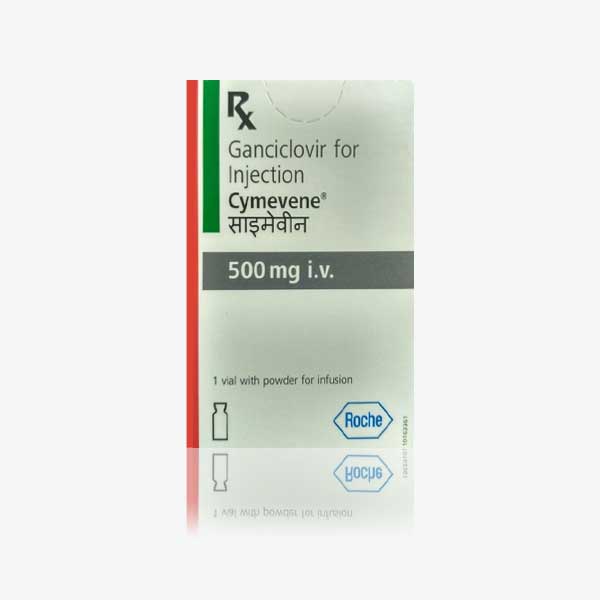
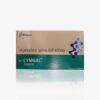
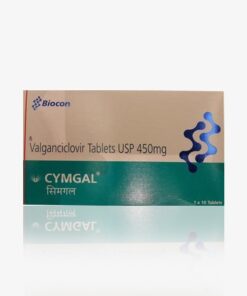


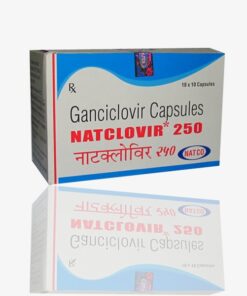
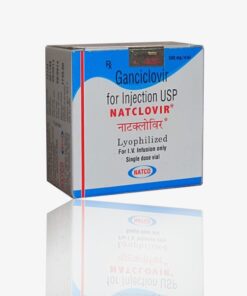
Reviews
There are no reviews yet.